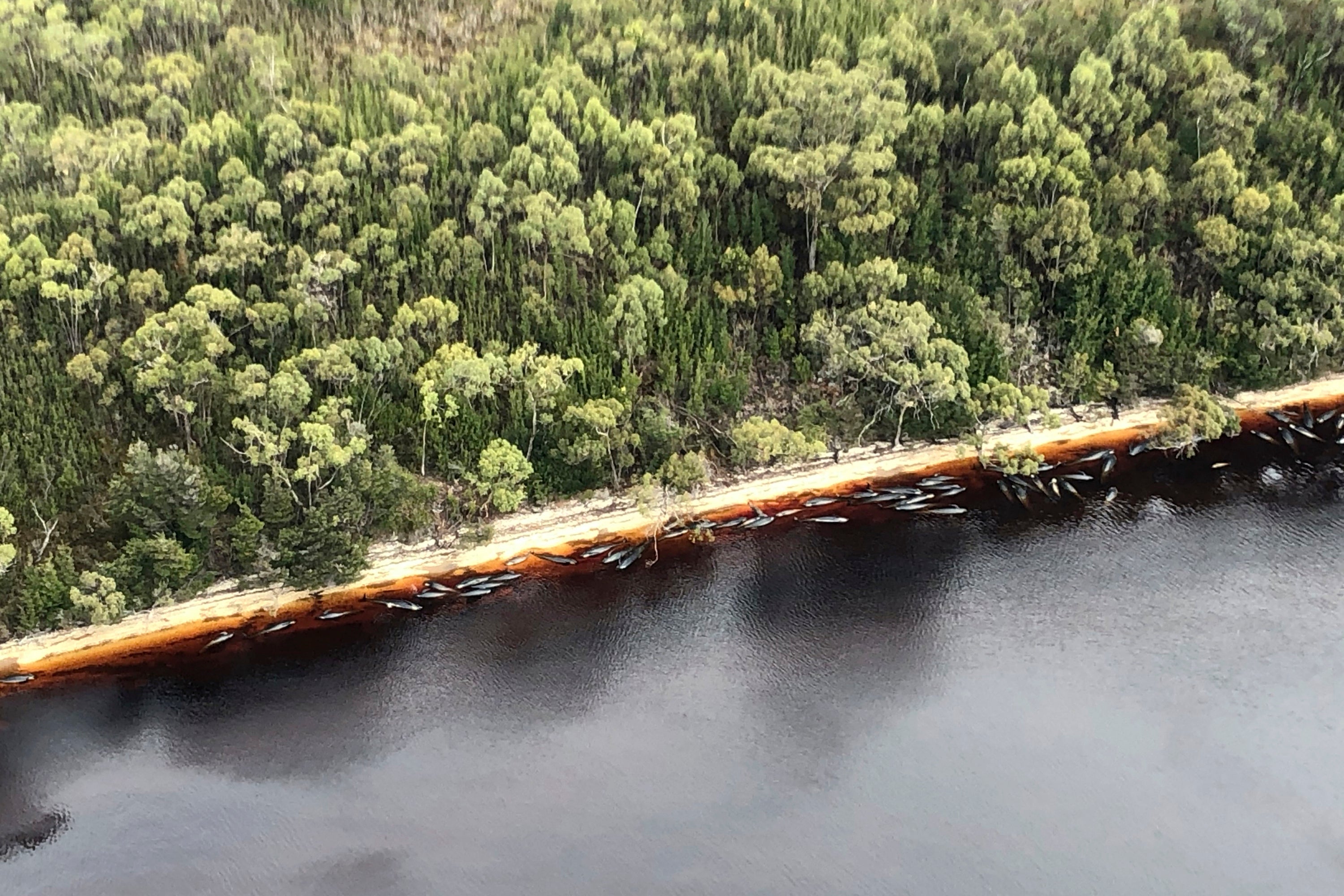70 whales rescued from Australia's worst mass beaching
Authorities have revised up the number of pilot whales rescued from Australia’s worst mass stranding from 50 to 70, as the focus shifts to removing 380 carcasses from Tasmania state shallows

Your support helps us to tell the story
From reproductive rights to climate change to Big Tech, The Independent is on the ground when the story is developing. Whether it's investigating the financials of Elon Musk's pro-Trump PAC or producing our latest documentary, 'The A Word', which shines a light on the American women fighting for reproductive rights, we know how important it is to parse out the facts from the messaging.
At such a critical moment in US history, we need reporters on the ground. Your donation allows us to keep sending journalists to speak to both sides of the story.
The Independent is trusted by Americans across the entire political spectrum. And unlike many other quality news outlets, we choose not to lock Americans out of our reporting and analysis with paywalls. We believe quality journalism should be available to everyone, paid for by those who can afford it.
Your support makes all the difference.Authorities revised up the number of pilot whales rescued from Australia’s worst mass stranding from 50 to 70 on Thursday, as the focus shifted to removing 380 carcasses from Tasmania state shallows.
The number of rescues had been estimated at 50 late Wednesday, but 20 more came to light following later discussions with rescue crews, Tasmania Parks and Wildlife Service Manager Nic Deka said.
Another 20 surviving whales could potentially still be saved on Thursday and vets were considering euthanizing another four, Marine Conservation Program wildlife biologist Kris Carlyon said.
An estimated 470 whales were discovered on Monday and Wednesday beached on the shore and sand bars along the remote west coast of the island state near the town of Strahan.
“We’re continuing with the rescue operation. We still have live animals that are viable for rescue,” Deka said. “But at the same time, we’re starting initial efforts with collection for disposal of carcasses.”
Deka said disposal at sea of the decomposing carcasses was the preferred option, but he was taking expertise advice.
Carlyon said some of the first whales rescued on Tuesday had beached again, but those guided back to sea on Wednesday appeared to have not returned. The rescued whales are marked to indicate which have returned.
“The 70 animals that have been refloated and released, we’re confident that most of the animals have got away,” Carlyon said. “Once they get into deeper water, they’re very hard to keep track of.”
Why the whales ran aground is a mystery. Theories include that the pod followed sick whales or made a navigational error.
Tasmania is the only part of Australia prone to mass stranding, although they occasionally occur on the Australian mainland.
Australia’s largest mass stranding had previously been 320 pilot whales near the Western Australia state town of Dunsborough in 1996.
Tasmania’s previous largest mass stranding involved 294 whales on the northwest coast in 1935.